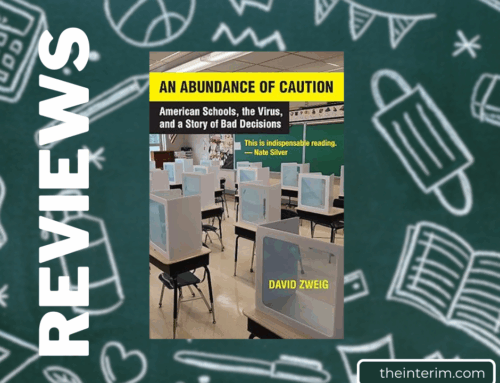The curtain is rising on the “gay” 90s. How different is our decade from the last Gay 90s – a century ago. They may have been decadent, but they were civilized compared to our own era, when “gay” has become a euphemism for a militant campaign to reconstruct perversion into something acceptable, even desirable to society.
Bill 7
As we have noted previously, homosexual demands now go well beyond what Ontario’s Bill 7 said they wanted – merely the guarantee of the same rights as anybody else, a guarantee which was not going to harm anyone unjustly.
A recent example of homosexual pressure was the attempt of GLAUT (Gays and Lesbians at the University of Toronto) to force The Mike, the student paper of St. Michael’s College, a federated College of the University of Toronto, to print an advertisement for a “Homo Hop” which took place last January 27. The Mike turned down the ad, not once but twice. GLAUT, whose chairman, Andrew Davidson, curiously, is a St. Michael’s student, then lodged a complaint against Greg McFarlane, chairman of the paper’s board of directors, with the Ontario Human Rights Commission, alleging discrimination on the basis of sexual orientation.
Davidson
In the January 31 issue of The Mike, Davidson was allowed to state his case at length, and the editor defended his position as well; in addition, there were letters for and against the paper’s stand.
Davidson claimed that his group was asking no more than what it was entitled to and that there was a disappointing amount of homophobia at St. Michael’s, that six past popes have been homosexual, that the true perversion is religion, since more people have been slaughtered in its name than for any other reason. From another campus publication, The Newspaper, he quoted an editorial maintaining that there is no reason to believe that a “Homo Hop” leads to activities condemned by the Church any more than a St. Michael’s pub leads to premarital sex and contraception, equally censured by the Church.
Editor
In the editor’s opinion, three freedoms were in conflict with each other: of the press, of religion, and of sexual orientation. The first ensures that a paper has the right to set its own advertising policies. If the Ontario Human Rights Code enforces the third, it also enforces the second: a person has the right to follow his own religion. The Mike’s bylaws oblige it to “endeavor to foster and promote the academic integrity and identity of the University of St. Michael’s College as a Catholic university,” and therefore the ban was completely reasonable.
College president
Among the letters to the editor was one from Father Jim McConica, the College president, who did little more than apologize to Davidson. Since The Mike became an independent corporation in 1985, he said, he had no control over it; but “to the extent that this episode has revealed genuine attitudes of homophobia in our undergraduate body, I am deeply concerned, as I should be equally with misogyny or misanthropy. No Christian institution can or should allow to go unchallenged attitudes which are unjust or uncharitable, whatever their focus,” he wrote. Leaving in doubt whether he was referring to the rejection of the ad or other matters as homophobia, he said that he had expressed his concern to the college chaplains and that they were responding with an initiative which would address the issue of homophobia.
One-day seminar
That initiative, a later announcement said, was to be a one-day seminar on homophobia in religion and society, to take place on March 3. The announcement reprinted part of a statement made by the U.S. Catholic bishops in 1987, namely, “We are alarmed by the increase of negative attitudes as well as acts of violence directed against gay and lesbian people since AIDS has become a national issue. We strongly condemn such violence.”
Violence and hatred ought to be condemned but is the refusal of placing an ad a case in point? At any rate, the seminar is to have two facilitators, Father Robert Nugent and Sister Jeannine Gramick, both of them defenders of Dignity, the organization which rejects the Church’s condemnation of homosexual activity. (The Interim, February 1990, p.20)
Innocent ad?
Another letter published in The Mike in support of GLAUT held that an ad for a gay dance is just that – an invitation to a social occasion. “If people of the same gender happen to sleep with each other (a euphemism) sometime afterward,” the writer said, “that is their own business and hardly the fault of the dance’s organizers. As for judging such behaviour – behaviour which harms no one, unless it be those that engage in it – I would suggest that we leave that to God.”
Comments
The writer has a mistaken idea of what charity and justice require. We know about the number of sexual encounters which homosexuals, especially males, have in the course of a year, it is naïve to think that a “Homo Hop” is not intended to bring together people who are likely to engage in what the Catholic Church regards as perversions. Their activity is not harmless; it may be fatal to their bodies and their souls.
Furthermore, “Homo Hops” affect the view of homosexuality in our culture and our society’s standard of sexual morality. Homophobia, if it means hatred of someone because he or she is a homosexual, is an offense against Christian principles; but homophobia, in the sense that it is a revulsion against sodomy and other sins of the flesh, is as understandable now as it was when St. Paul spoke out so strongly against such actions. The desire of the people who wished to place their ad in The Mike was to make a Catholic paper acknowledge that homosexual activity is perfectly normal and natural, only a matter of a different lifestyle from that of the majority of the population.




